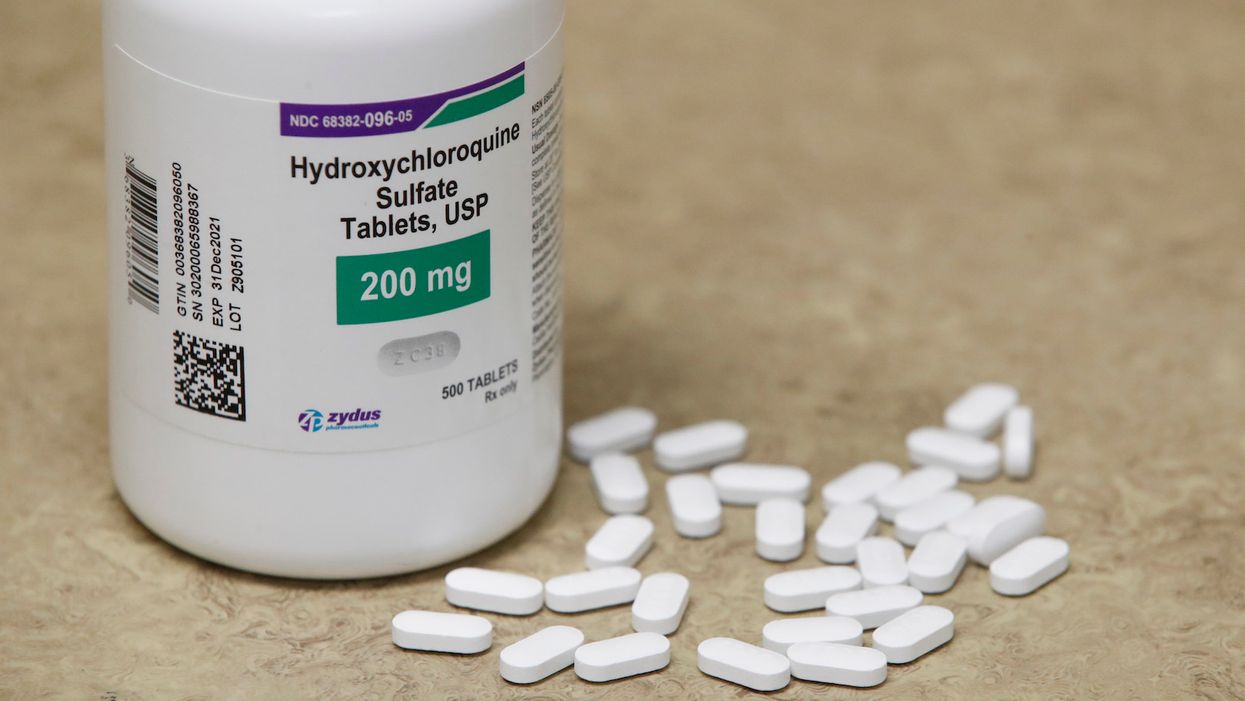
A bottle and pills of Hydroxychloroquine sit on a counter on May 20 at Rock Canyon Pharmacy in Provo, Utah. (Photo by GEORGE FREY/AFP via Getty Images)

President Donald Trump said he used the drug
The Food and Drug Administration has ended the emergency use authorization that allowed physicians to prescribe chloroquine and hydroxychloroquine to treat COVID-19, citing its ineffectiveness as a treatment and potentially dangerous side effects.
The FDA issued the EUA for the anti-malarial drugs at the end of March after some physicians in other countries claimed patients improved with the treatments. However, further study has not proven them to be effective against COVID-19, and research has revealed potential dangers.
The FDA added the following update to its guidance on the emergency use authorization for chloroquine and hydroxychloroquine:
Based on FDA's continued review of the scientific evidence available for hydroxychloroquine sulfate (HCQ) and chloroquine phosphate (CQ) to treat COVID-19, FDA has determined that the statutory criteria for EUA as outlined in Section 564(c)(2) of the Food, Drug, and Cosmetic Act are no longer met. Specifically, FDA has determined that CQ and HCQ are unlikely to be effective in treating COVID-19 for the authorized uses in the EUA. Additionally, in light of ongoing serious cardiac adverse events and other serious side effects, the known and potential benefits of CQ and HCQ no longer outweigh the known and potential risks for the authorized use. This warrants revocation of the EUA for HCQ and CQ for the treatment of COVID-19.
A study published in May in the prominent scientific journal The Lancet, which claimed to find that hydroxychloroquine is dangerous, was later retracted after the data upon which the study was based was found to be inconsistent and unverifiable.
The retracted study concluded that hydroxychloroquine and chloroquine showed no benefit on in-hospital COVID-19 patient outcomes, while it was associated with "decreased in-hospital survival and an increased frequency of ventricular arrhythmias when used for treatment of COVID-19." The FDA's statement did not specify what scientific evidence it reviewed to conclude that the EUA should be revoked.
The FDA previously announced safety concerns associated with the drugs in late April.
"Hydroxychloroquine and chloroquine have not been shown to be safe and effective for treating or preventing COVID-19. ... Hydroxychloroquine and chloroquine can cause abnormal heart rhythms such as QT interval prolongation and a dangerously rapid heart rate called ventricular tachycardia," a statement on the FDA website reads. "These risks may increase when these medicines are combined with other medicines known to prolong the QT interval, including the antibiotic azithromycin, which is also being used in some COVID-19 patients without FDA approval for this condition. Patients who also have other health issues such as heart and kidney disease are likely to be at increased risk of these heart problems when receiving these medicines."
Last month, President Donald Trump announced that he was taking hydroxychloroquine as a preventive measure against COVID-19.
"I happen to be taking it," Trump said on May 18. "A lot of good things have come out. You'd be surprised at how many people are taking it, especially the front-line workers. Before you catch it. The front-line workers, many, many are taking it."